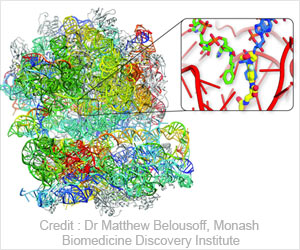How do antidepressants help bacteria resist antibiotics? Antidepressants triggered cellular defense mechanisms that help bacteria to survive antibiotic treatment.
- Antimicrobial resistance is one of the top 10 global public health threats facing humanity
- Emerging research has started to link non-antibiotic medications to the growing problem
- One such latest research points to antidepressants as potentially compounding the problem
Antibiotic resistance
Go to source).
A new study by the University of Queensland (UQ) published in Proceedings of the National Academy of Sciences focuses on bacterial exposure of five of the most common antidepressants prescribed in Australia.
The antidepressants looked at in this study are sertraline (Zoloft), escitalopram (Lexapro), bupropion (Welbutrin), duloxetine (Cymbalta), and agomelatine (Valdoxan).
Using the E. coli K-12 strain MG1655 – a typical bacterial strain known to be responsive to antibiotics – the team exposed the bacteria to various antidepressant drugs at varying concentrations over 60 days. This ranged from low level (0.1 mg/L and 1 mg/L) to medium level (10 mg/L), and high level (50 mg/L and 100 mg/L).
Is Widespread Use of Antidepressants Fueling Drug Resistance in Bacteria?
Throughout the study period, the bacteria were exposed to various antibiotics, including amoxicillin, ampicillin, cephalexin, chloramphenicol, ciprofloxacin, colistin, erythromycin, kanamycin, levofloxacin, norfloxacin, roxithromycin, tetracycline, and trimethoprim.The research showed that the antidepressants could induce multi-drug resistance, with sertraline and duloxetine exhibiting the most significant effects, even at very low doses, with signs of resistance after a few days of exposure.
Further to that, mathematical modeling predicted that the antidepressants would accelerate the emergence of antibiotic-resistant bacteria and that persister cells would help to maintain the resistance over a longer period.
As well as identifying the role of antidepressants, the latest research also set out to understand the underlying mechanism. They found that the antidepressants result in a strong oxidative stress response towards bacteria, leading the bacteria to become antibiotic resistant to survive or defend against this stress (2✔ ✔Trusted Source
How antidepressants help bacteria resist antibiotics
Go to source).
Antidepressants Push Antibiotics Resistance
The findings raise significant concern, given how commonly antidepressants are prescribed. In Australia alone in 2021, more than 42 million prescriptions were dispensed, while antidepressants comprise 4.8% of the global pharmaceutical market, marginally less than antibiotics (5%).However, the microbiologist is keen to note that the findings are in no way a signal to doctors to curb prescribing of antidepressants, or for patients to stop their use.
Further studies in animals and humans are needed to evaluate the potential effects antidepressants have on the microbiomes of people and to assess their risk for gastrointestinal disturbances or diseases.
References:
- Antibiotic resistance - (https://www.who.int/news-room/fact-sheets/detail/antibiotic-resistance)
- How antidepressants help bacteria resist antibiotics - (https://www.nature.com/articles/d41586-023-00186-y)
Source-Medindia
















